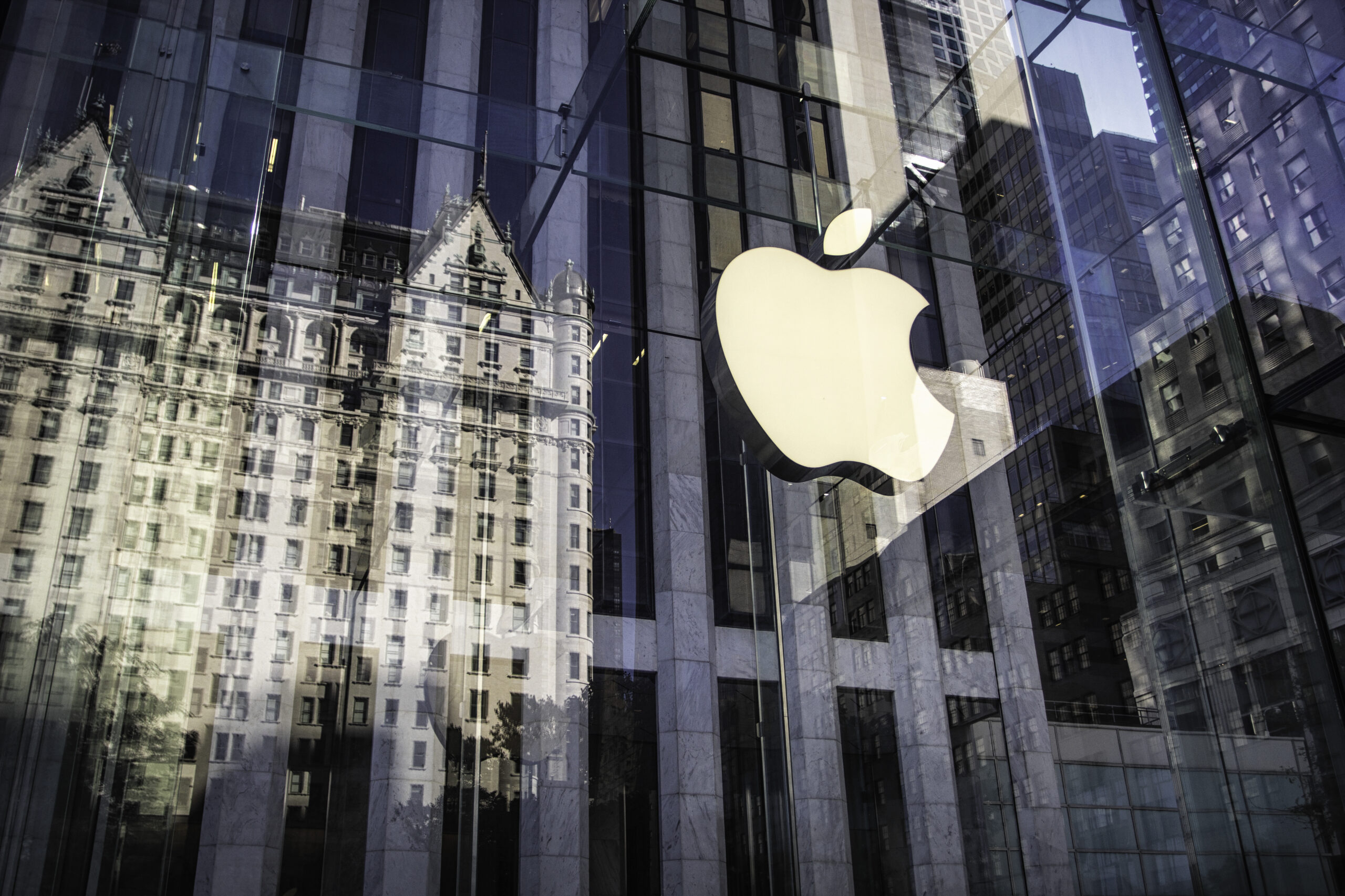Apple device users care deeply about data privacy and security. The latest iOS 18 update brings exciting new privacy protections that put users in control of their data. With enhanced transparency into how apps access sensitive information, granular permissions to limit data sharing, and powerful new anonymization techniques, Apple continues leading the charge to empower users to decide when, how, and if their data is shared. Read on to learn how the innovative privacy features in iOS 18 further Apple’s commitment to letting users choose who sees their data.
An Overview of Apple’s New Data Privacy Features in iOS 18
With the release of iOS 18, Apple continues its commitment to user privacy by introducing several new data protection features. These enhancements give you greater visibility and control over how your personal information is collected and shared across apps and services.
App Privacy Report
- The new App Privacy Report provides an at-a-glance view of how apps have accessed your data over the last seven days. This overview covers key data categories like location, contacts, camera, and microphone usage. You can easily see which apps accessed what information and make informed decisions about adjusting permissions.
Enhanced Tracking Controls
- Building on App Tracking Transparency in iOS 14, iOS 18 delivers new tools to limit cross-app and cross-website tracking. A new privacy dashboard lets you view and manage which apps and websites are allowed to track your activity for advertising purposes across other companies’ apps and websites.
Mail Privacy Protection
- The Mail app in iOS 18 helps prevent email senders from knowing when you’ve opened their messages and masks your IP address, protecting your privacy. This stops senders from learning your location or collecting other private information without your permission.
Expanded Pasteboard Permissions
- In iOS 18, apps must now request permission before accessing data you’ve copied to the system clipboard or pasteboard. This prevents apps from surreptitiously reading sensitive data like login credentials or other private information.
Secure Camera & Microphone Indicators
- New privacy indicators in the status bar clearly show you whenever an app is accessing your camera or microphone. These provide an at-a-glance way to identify if an app is improperly using these sensors when it shouldn’t be.
With these robust data privacy controls in iOS 18, Apple continues to empower users to make informed choices about how their personal information is handled across apps and services.
How Apple’s Data Privacy Enhancements Give You More Control

More Transparency on App Tracking
- With iOS 18, you gain greater visibility into how apps track and access your data across other companies’ apps and websites. The new enhanced data privacy controls make it easier to see which apps have requested permission to track you and revoke access if desired.
- By being able to audit an app’s data-tracking practices, you can make informed decisions about which apps to trust with your personal information. This transparency empowers you to confidently allow data sharing with apps you find trustworthy while restricting invasive tracking by others.
Intelligent Tracking Prevention
- Apple’s Intelligent Tracking Prevention uses machine learning to identify and prevent cross-site tracking, a common tactic used by advertisers. This stops third parties from following your browsing across multiple sites to build detailed profiles about your online activities.
- While convenient for targeted advertising, such unbridled data collection raises serious privacy concerns. With Intelligent Tracking Prevention, you can browse freely without having to worry about shadowy entities monitoring your every digital move.
Private Relay for Secure Browsing
- The new Private Relay feature encrypts your outgoing internet traffic and routes it through two separate internet relays. This makes it virtually impossible for networks or websites to see your IP address, location, and browsing activities.
- Whether at home or using public Wi-Fi, Private Relay ensures your online existence remains discreet and anonymous from prying eyes. This additional layer of security is especially valuable when accessing sensitive information like financial accounts or healthcare portals.
Mail Privacy Protection
- Email tracking pixels allow senders to collect information about you, including when you open their message. With the new Mail Privacy Protection, Apple proactively disables these trackers before emails reach your inbox.
- Your email activities remain private, preventing senders from surreptitiously gathering data about your habits and location. This simple privacy enhancement eliminates a common vector for invasive email tracking.
In today’s data-driven world, Apple’s latest privacy controls give you the power to decide how your personal information is collected and used online. These new iOS 18 features provide robust transparency and anonymity tools to help you take back control of your digital privacy.
What the New Data Privacy Features Mean for Apps and Advertisers
Restricted Data Access
- Apple’s new iOS 18 data privacy controls significantly restrict apps and advertisers from accessing user data without explicit consent. This impacts their ability to track user activity across apps and websites for targeted advertising purposes. Advertisers will face challenges in precisely measuring ad campaign performance and audience targeting.
Enhanced User Controls
- Users gain more transparency into how apps handle their data through the new “Data Privacy” section on app listings. They can see privacy practice details and grant/revoke permissions for data access with a few taps. This empowers users but may lead to lower opt-in rates for data sharing.
First-Party Data Prioritization
- With tracking pixels and device fingerprinting techniques restricted, app developers and ad networks will need to rely more heavily on consented first-party data collection. Strategies like incentivized opt-ins, value exchanges for data sharing, and privacy-focused attribution models will become crucial.
Contextual Advertising Shift
- The new privacy landscape incentivizes a shift towards contextual and audience-based advertising versus traditional user-level tracking. Advertisers must adapt to aggregate data signals like app categories, content topics, and broader demographics instead of granular personal profiles.
Compliance and Transparency
- Adhering to Apple’s strict data handling policies will be critical for apps to avoid penalties or removal from the App Store. Transparent user communication about data practices is now essential to build trust and consent for data utilization.
Examples of iOS 18 Data Privacy Enhancements in Action
Apple’s newest mobile operating system, iOS 18, brings several noteworthy data privacy enhancements that give users greater control over their personal information. Let’s explore a few key examples of these privacy features in action.
Intelligent Tracking Prevention
- One standout enhancement is Intelligent Tracking Prevention. This feature builds upon previous efforts to limit cross-site tracking by further restricting the ability of third-party entities to monitor your online activities across websites and apps. With Intelligent Tracking Prevention, iOS 18 can better detect and prevent covert tracking mechanisms, ensuring your browsing habits remain private.
Privacy Report
- Another useful tool is the revamped Privacy Report. This report provides a clear, comprehensive overview of how apps on your device are accessing and handling your data. It highlights any potential privacy risks and enables you to make informed decisions about which apps to keep or remove based on their data-handling practices.
Secure Video Communications
- For those who frequently engage in video calls or online meetings, iOS 18 introduces enhanced security for video communications. New encryption protocols and authentication measures help protect your video streams from potential eavesdropping or tampering, safeguarding your conversations’ confidentiality.
Location Services Controls
- Location data is among the most sensitive types of personal information, and iOS 18 gives you more granular control over how apps can access your location. You can now selectively grant or deny location access to specific app features, rather than providing an all-or-nothing permission. This level of control ensures your location data is shared only when and how you intend.
These are just a few examples that illustrate Apple’s ongoing commitment to bolstering user privacy through its software updates. As data privacy concerns continue to grow, such enhancements empower iOS users to take charge of their digital footprint and maintain greater control over their personal information.
Apple’s Data Privacy Enhancements FAQ
How do I control app tracking?
- Apple’s new App Tracking Transparency feature gives you a simple way to control which apps are allowed to track your activity across other companies’ apps and websites. When an app wants permission to track your activity, you’ll see a prompt asking for your choice. You can allow tracking if you’d like or deny access with just one tap.
What’s the risk of being tracked?
- When apps are allowed to track your activity, they can combine information about your device’s data with data from third parties to build comprehensive profiles about you and your interests. This data is often used to target you with ads, but it could potentially be shared with or purchased by other entities.
What about email privacy?
Mail Privacy Protection helps prevent senders from learning private information about your Mail activity. It stops senders from seeing if you’ve opened their email messages and masks your IP address so it can’t be linked to your online activity or used to determine your location.
How is Safari keeping me safer?
- Safari now uses intelligent tracking prevention that identifies and prevents trackers from profiling you as you browse the web. Websites can’t access your precise location without your explicit approval. Safari also protects against unwanted HTTPS tracking and partitions third-party cookies to prevent data sharing by default.
Does Apple collect my data?
- No, Apple has built Privacy into the design of their operating systems. They don’t access your private information like photos, messages, emails, or browsing activity to profile you and serve targeted ads. Apple’s business model is based on selling great products and services, not selling your data.
Summing It Up
Apple’s new data privacy features in iOS 18 empower users and give them more control over their personal information. The updates allow you to choose what data is shared and with whom through prompts and notifications. By implementing these proactive measures, Apple shows they prioritize user privacy and aim to set a higher standard for data practices industry-wide. While no system offers complete protection, Apple’s continued innovation moves us in the right direction. You now have additional tools to manage data sharing and can make informed decisions about your privacy. While challenges remain, Apple’s commitment to transparency and user control over personal data is a positive step.
More Stories
Perplexity Labs: Transforming Prompts into Dynamic Reports and Dashboards
As a professional in today’s fast-changing digital world, you need tools that go beyond traditional limitations. That’s where Perplexity Labs comes in—an innovative feature from Perplexity AI, available only to Pro subscribers. It turns your creative prompts into detailed reports, interactive dashboards, spreadsheets, and even full web applications.
Instagram Edits Empowers Creators with Pro-Level Mobile Video Tools
Instagram unveiled Edits, their groundbreaking mobile video editing app designed to elevate the quality of Reels and short-form videos to empower creators.
Google’s AI Edge App Brings Offline Intelligence to Your Phone
The new AI Edge App from Google reshapes mobile technology as it brings artificial intelligence directly to your smartphone.
Salesforce Accelerates AI-Driven Cloud Data Integration with Informatica Acquisition
Salesforce acquires Informatica in a deal valued at around $8 billion as part of a bold move to redefine its approach to cloud data management.
Samsung’s AI Power Play: Perplexity Partnership Signals Shift from Google
Samsung is poised to redefine AI in its Galaxy smartphones through a bold strategic move. It has partnered with Perplexity AI, an innovative U.S.-based startup. This signals a possible shift away from Google’s AI ecosystem. As a result, Samsung may integrate Perplexity’s advanced assistant into its devices.
KT Cloud Accelerates Digital Growth with New High-Tech Data Center in Yecheon-Gun
KT Cloud new data center in Yecheon-gun marks a key public-private effort with Gyeongsangbuk-do and Yecheon County.


